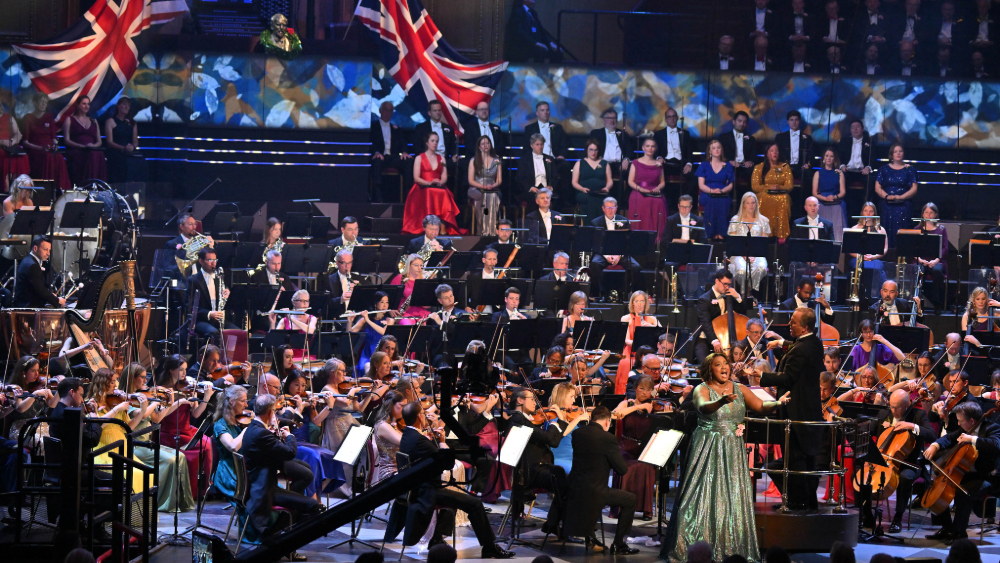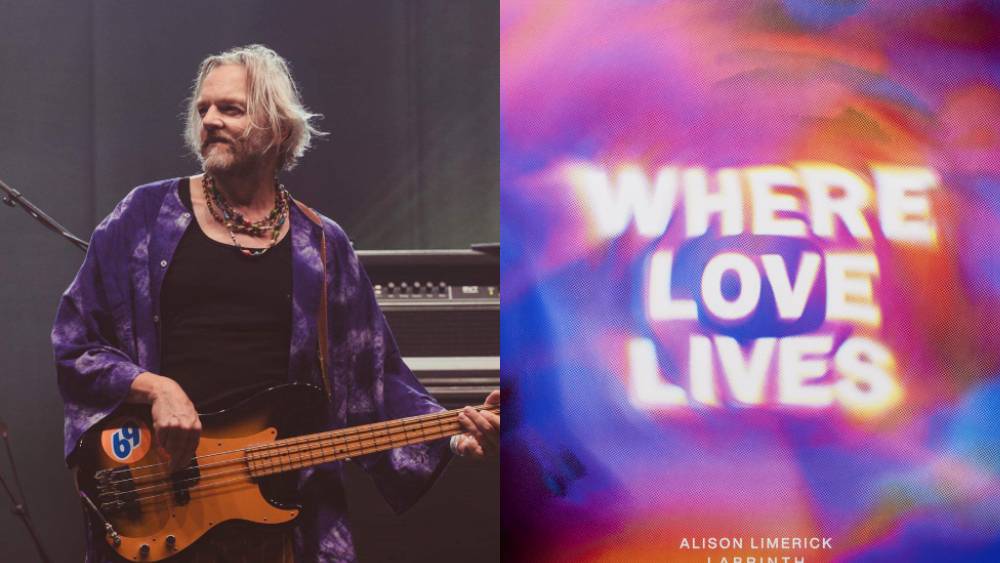Beautifully lit selfies; immaculate interiors — the artfully arranged flowers are coincidental, you understand — cute pets; reluctant children on doorsteps. New things, personal bests and achievements are the stories we tell. Does a memory exist if it's not digitised, documented or disseminated? These depictions, we are led to believe, encapsulate happiness: a state of being acquired through love, wealth, artistry or power — or, ideally, a combination of all.
But, as we are reminded through Sir George Benjamin’s coruscating opera Picture a day like this, appearances can be deceiving. The talented are riddled with self-doubt; a passionately entwined couple are set to split; that outwardly positive person is dangerously depressed. When our social barometer cracks, our perceptions become unreliable. Sir George’s opera follows a bereaved mother as she searches for a happy person from whom she can ‘cut one button from their sleeve’, which she has been told will return her child to life. Scenes unfold into a series of meetings with a pair of lovers, a craftsman, a composer and a wealthy collector — none of whom, despite appearances to the contrary, are content.
The story, written by Benjamin’s long-term collaborator Martin Crimp (with whom he has created three other operas: Into the Little Hill, 2006; Lessons in Love and Violence, 2018; Written on Skin, 2012), is taut (‘No sooner had my child started to speak in whole sentences than he had died’) and uncompromising ('all your fucking polyamory'). After its 2023 premiere at the Aix-en-Provence festival, the production came to the Royal Opera House's Linbury Studio Theatre, where, over the course of repeated viewings, new aspects of this modern-day fable revealed themselves.
The following year, a much-anticipated audio recording from Aix was released via Nimbus. Featuring The Mahler Chamber Orchestra, conducted by Sir George, they sound pearlescent performing the dissociative, dream-like score. That record won in the Contemporary Recording Category — sponsored by PPL and PRS for Music — at the Gramophone Awards 2025.
'Martin Crimp and I must have considered 30 or maybe 40 stories for Picture a day like this.'
'Picture a day like this has just been performed in Naples and some of the cast members were on the original recording — we are all thrilled,' Sir George tells M about the accolade. The collaboration with Martin is central to Benjamin’s operatic creativity. ‘We must have considered 30 or maybe 40 stories,’ he says of Picture a day like this, which takes inspiration from traditional European fairytales and Buddhist folklore. Grittier aspects — the jovial, button-clad artisan rolls up his sleeves to reveal self-made cuts; a lowered shirt collar shows rope burn from an attempted hanging — bear Martin’s astute understanding of humanity’s darker side. A writer of opera plots and lyrics is usually referred to as a ‘librettist’, but, as Benjamin explains, Crimp — a playwright by trade — eschews the term ‘libretto’ for ‘text’.
‘Once we've agreed on a story — that can take a year! — there will be some discussion about the nature of the piece and the number of singers,’ Sir George reveals about their creative process. ‘Then, there might be six months, maybe more, with almost no contact, as agreed. Then one day, plop! A brown A4 envelope arrives through the letterbox. I open it, knowing that the next three years of my life will depend on my reaction to this text.’
With four successful projects now under their belts, Sir George knows he can be confident about this collaboration. Such long-term artistic partnerships are rare in the opera world: ‘I searched for three decades to find the right writer, so I value this working relationship all the more strongly.’
Rather like the central character in Picture a day like this, Sir George’s broader creative quest has relied on labouring self-development. It’s a process that has been formally recognised: he was awarded a CBE in 2010 before being knighted in Queen Elizabeth’s 2017 birthday honours. Perhaps more importantly, his instrumental music is increasingly being programmed and appreciated by the next generation of musicians. Earlier this year, pianist Mishka Rushdie Momen’s delivered an entrancing performance of Sir George’s 2001 solo piece Shadowlines at Aldeburgh Festival in Suffolk. Its six canonic preludes are intensely varied and virtuosic, yet economical in their melodic material, and Mishka’s articulate, shimmering interpretation captivated ears and minds.
At the other end of the textural spectrum is Ringed by the Flat Horizon, Sir George’s breakthrough orchestral work that was performed by the BBC Symphony Orchestra (and a youthful Sir Mark Elder) at the 1980 Proms. The London Philharmonic Orchestra (LPO), under their Principal Conductor Edward Gardner, recently revived the work to celebrate Sir George’s appointment as the ensemble’s composer-in-residence. As part of the residency, he will mentor five participants from the LPO’s Young Composers programme as they each create a new work for chamber orchestra that will be performed at a public showcase concert at the Southbank Centre’s Queen Elizabeth Hall.
Teaching has always been important to Sir George. Having enjoyed a privileged education himself (Westminster School; tutelage with composer Olivier Messiaen in Paris; studying under Alexander Goehr at Cambridge), he’s devoted decades to giving back.
‘I've been teaching at King's College London for a quarter of a century now!’ Sir George, who is the Henry Purcell Chair of Musical Composition at KCL, says with a smile. ‘There have been long sequences of amazingly gifted students.’ One example is Dai Fujikura, whose opera The Great Wave — telling the story of the artist Hokusai and his emoji-preserved seascape — will be premiered by Scottish Opera next year.
'We need to be part of the international arts scene as it changes and transforms.'
As some classical music professionals, particularly in the opera space, are openly advising young musicians to seek careers abroad, how does Sir George feel about the state of the UK’s classical music industry?
‘In terms of being a young composer, the orchestral schemes are probably better here than anywhere else in the world,’ he tells M. ‘The UK has some of the best orchestras, many of which have a wonderful attitude to new music. But all the same, there seem to be great dangers for classical music. Our insularity has worsened after Brexit; we need to be part of the international arts scene as it changes and transforms. There are far fewer opportunities for composers to get their work commissioned, broadcast and performed, and rampant populism is damaging essential structures. However, I do believe there’s still time to reverse these issues.’
As we enter 2026, Sir George is politely firm about which of his own compositions might be in progress: ‘Forgive me, I’ve never been able to talk about the future. I can’t discuss work until it exists.’
Given the carefully crafted nature of Sir George’s scores, this is understandable. With our curiosity tamed, we can at least be safe in the knowledge that whatever comes next will be worth the wait.
Main image credit: Chris Christodoulou
.ashx?h=563&w=1000&la=en&hash=3D8969BB90F55ECD202E98F8E7B91529)




